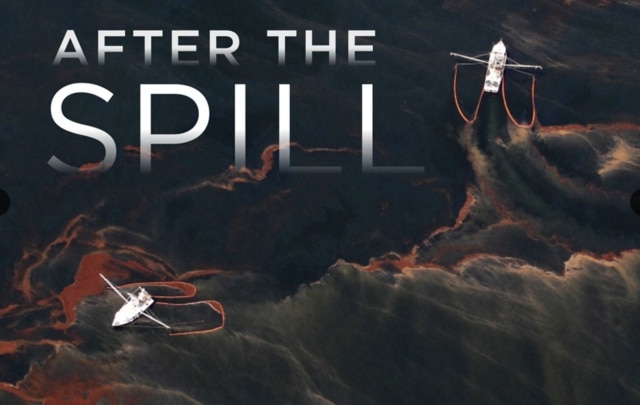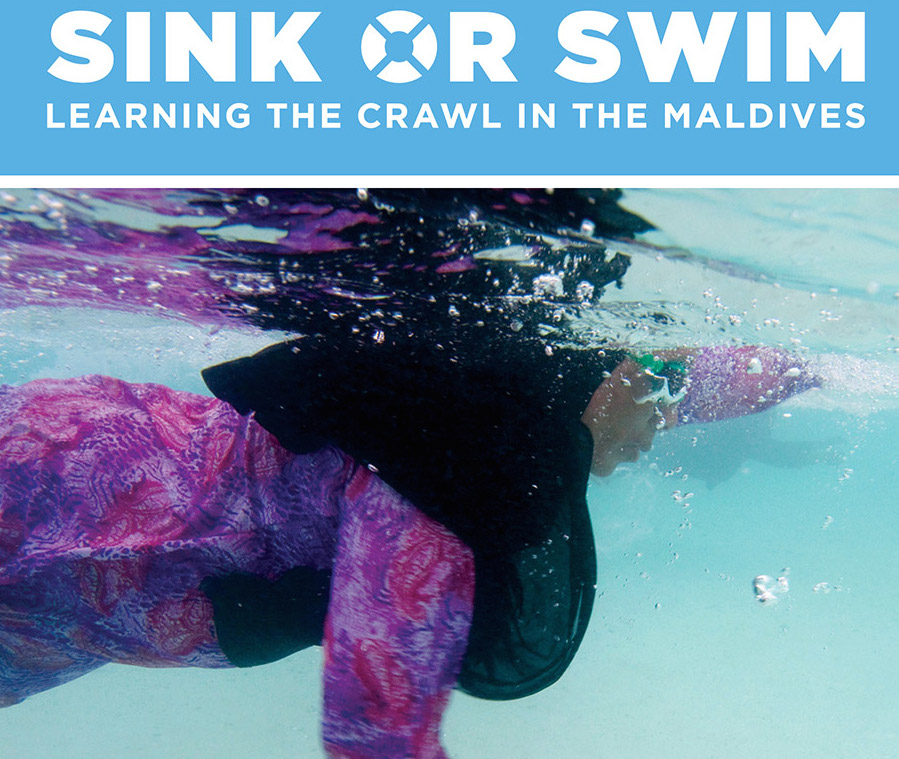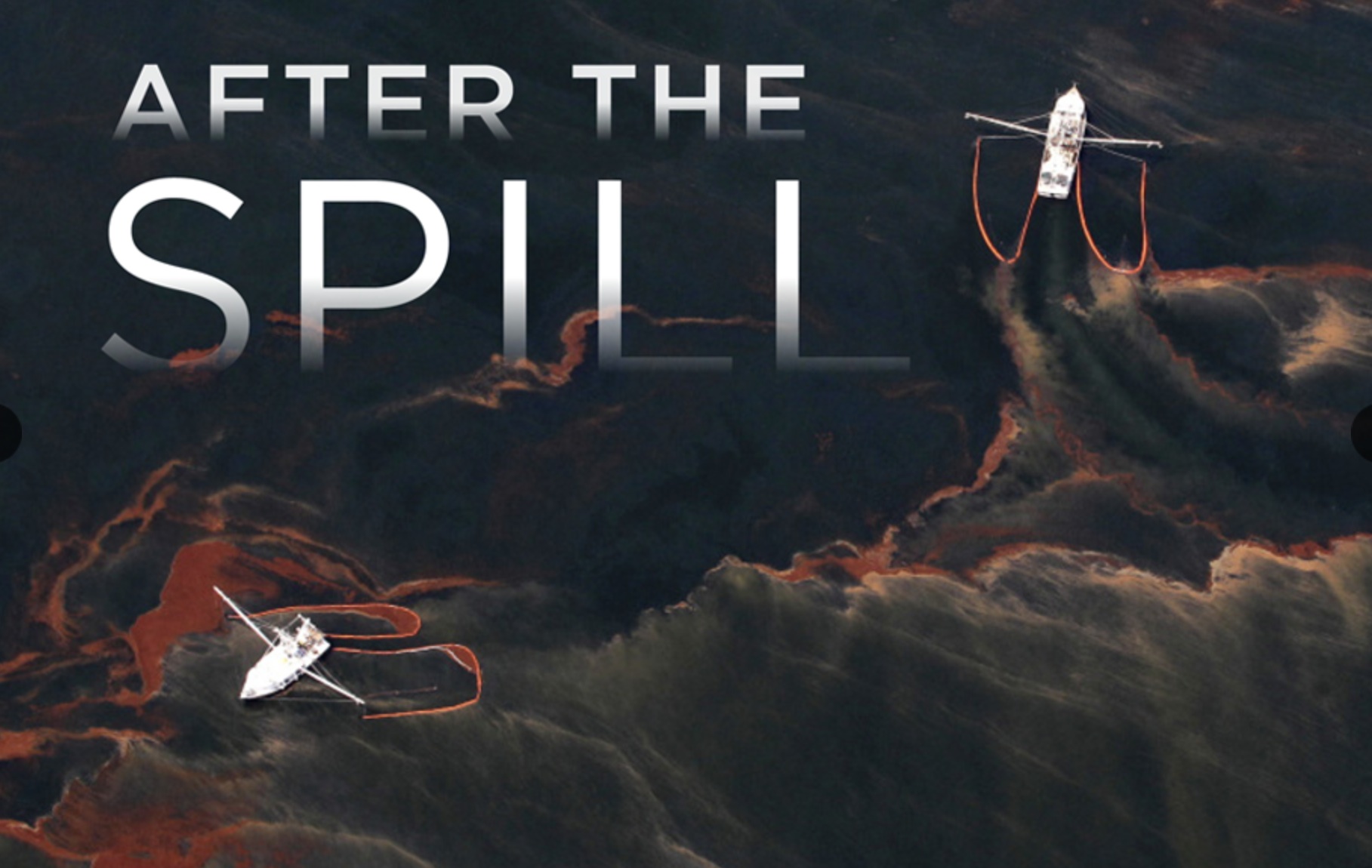Jon Bowermaster spent ten years kayaking oceans and waterways all around the globe in an effort to document and understand the relationship between humans and the oceans for a National Geographic project. Understandably, he has a lot of stories to tell and shared many when DeSmog recently sat down to talk with him about his various upcoming projects.
“We were on a remote island off of Croatia one time and turned a corner in the kayaks and pulled up on what would have been this beautiful beach and it was just knee deep in trash,” Bowermaster recounted. “And a woman was standing on the shore and was throwing it back in the water. And we asked her why she was doing that and she said, ‘Well that’s where it belongs.’”
He has many stories like that. Like one from a recent project in the Maldives where they documented efforts to teach local girls and women to swim. “We couldn’t teach them on their own island because the waters were so polluted with garbage.”
In 1990, years before the kayak adventures, Bowermaster co-authored the book Saving the Earth: A Citizen’s Guide to Environmental Action. Looking back on the book and all of his work in the 25 years since it was published, Bowermaster notes progress has been slow when it comes to addressing the issues outlined in the book.
“Twenty five years later each of these issues still exists. The one difference is that I think environmental education has grown in a huge way,” Bowermaster explained, “We’re educated. But we are slow to change.”
Despite realizing the enormity of the task of driving real change, Bowermaster isn’t letting it discourage him.
In 2012, he produced the documentary Dear Governor Cuomo that helped educated New Yorkers about the dangers of fracking prior to the Cuomo administration’s decision to ban fracking in the state.
And then there is his recent film Antarctica 3D: On the Edge, showing at 3D theaters around the country.
Antarctica On The Edge Trailer from Oceans 8 Films on Vimeo.
Bowermaster has been to Antarctica “dozens of times” over the past couple of decades and notes how this perspective gives one such a clear understanding of how the climate is changing.
“The beauty of going back every year is you can literally see the place changing. Being able to see that up close has been very powerful for me. Going back every year and seeing new islands that you didn’t know existed. Places that used to be covered with ice that are now open water. It’s profound.”
And when it comes to pollution and garbage, Bowermaster says it is everywhere except Antarctica, but notes, “It’s coming.”
In 2008, after spending a decade traveling the world, Bowermaster wanted to focus on the U.S as a subject, and thus was in New Orleans making the documentary SoLa about the oil and gas industry’s ongoing destruction of the coastal wetlands when the film’s story developed an unexpected twist.
“We were literally finishing the film in 2010 when Deepwater Horizon blew up.” In the film, this footage serves as a depressing exclamation point hammering home the reality of what is happening on the Gulf coast.
In September, Bowermaster’s latest production After the Spill will be released. It documents the damage from the Deepwater Horizon spill.
With two Louisiana documentaries now under his belt, Bowermaster offered DeSmog some perspective on the high profile disaster vs. the decades long environmental destruction of that environment.
“The oil spill obviously was horrific, the worst environmental accident in U.S. history. But that’s not the worst thing happening in the gulf,” he explained. “The fact that Louisiana is disappearing is the story. The oil spill was just a reminder of how greedy the oil companies have been.”
And despite what has happened to the Gulf, he notes that even there the change is slow in coming.
“A year after the spill I would say to the audience, ‘what have you done to change your life to make you or us less dependent on fossil fuels?’ And that’s when everyone looks at their feet. Because we don’t. We are incredibly slow to change. We only really change when we are forced to.”
More recently, Bowermaster has turned his investigative eye on an issue even closer to home — New York’s Hudson River. He has lived near the river for the past 25 years.
Earlier this year, he launched the website Hudson River at Risk highlighting the many threats facing the Hudson including oil trains and the aging Indian Point nuclear power plant. And he definitely is energized by the ban on fracking in New York and the role he and the Dear Governor Cuomo film played in that conversation.
While quick to credit Josh Fox of Gasland — “minus Gasland, we’d probably have it [fracking]” — he believes his film and efforts to educate the public also played a role.
“The reason it worked is because we took it around the state and showed it in community centers, theaters and churches and everywhere and educated consumers at a grassroots level. And I went to a lot of screenings and people, really smart people would come up to me afterwards and say, “I had no idea.”
The Dear Governor Cuomo film has spawned others like Dear Governor Hickenlooper in Colorado, and at the end of this year Bowermaster’s Dear President Obama: Americans Against Fracking in One Voice will be released.
Despite all he has seen, Bowermaster remains optimistic about the future and notes that the President Obama film opens with “big beautiful aerials of massive solar and wind farms.”
He also explained how it is nice to have the example of the fracking ban in N.Y. for his daughter. He said that she attended many of the rallies over the years and saw the efforts to ban fracking first hand.
“It is so powerful for us to able to say that if you stand up and take a stand, you can make a difference, you can win.”
Coming from a guy who co-wrote a guide to saving the planet 25 years ago, that is good to hear.
Subscribe to our newsletter
Stay up to date with DeSmog news and alerts









